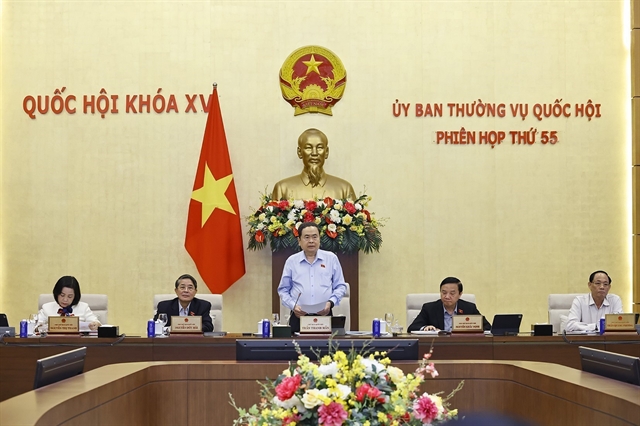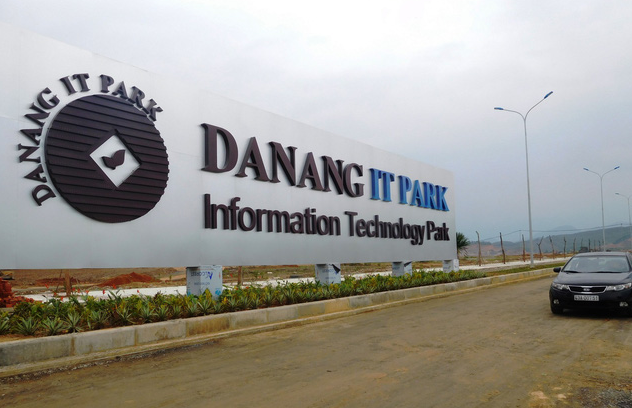 Economy
Economy


|
| Đà Nẵng is emerging as a “Silicon Valley” of Southeast Asia, with local authorities working to build its digital ecosystem and prioritising FDI projects in the high-tech sector. — Photo baodanang.vn |
ĐÀ NẴNG — Việt Nam is willing to welcome investment from Japanese IT enterprises, Deputy Minister of Information and Communications Phạm Anh Tuấn told an online conference.
Held to promote Japanese investment in the central city of Đà Nẵng, the conference attracted the participation of about 200 investors and IT businesses from Japan.
In his remarks, Tuấn said the Vietnamese Government had been completing its models, mechanisms, and policies for the breakthrough development of concentrated IT and high-tech areas in Việt Nam’s major economic hubs.
Đà Nẵng was emerging as a “Silicon Valley” of Southeast Asia, with local authorities working to build its digital ecosystem and prioritising FDI projects in the high-tech sector, he added.
“Việt Nam is switching to the so-called “Make in Vietnam” movement, while boosting the formation of joint ventures and attracting foreign conglomerates, especially those producing smart equipment using the Internet of Things (IoT), artificial intelligence (AI), and big data technologies, among others,” he added.
The Deputy Minister also said that in the context of the world economy entering a period of growth mainly based on technology and innovation, Việt Nam’s strategy to attract investment was to ensure its competitive advantages.
In addition, the country would continue to invest in developing telecommunications network infrastructure, upgrading 4G mobile networks, and soon commercialising 5G mobile networks; reviewing and developing digital infrastructure in industrial parks, hi-tech parks, and IT parks to be ready to meet the needs of data connection and processing, and large-scale investment needs of multinational technology corporations. These would create a premise for smart production.
The country had already released a national programme for digital transition by 2030, to create a digital space that covers activities in health, education, finance, agriculture, and transport, and a co-operative environment that assists foreign investors in Việt Nam.
Trần Văn Miên, vice chairman of Đà Nẵng People’s Committee, said the city had paid attention to investing in five key areas, including tourism and high-quality services associated with resort real estate; seaports, aviation associated with logistics services; high-tech industry associated with innovative urban construction and start-ups; the IT, electronics and telecommunications industries associated with the digital economy; high-tech agricultural products and fisheries.
“With the return of international flights, we look forward to welcoming Japanese businesses and investors to work directly in Đà Nẵng,” he said.
According to Vietnamese Ambassador to Japan Vũ Hồng Nam Việt Nam and Southeast Asian countries have a great opportunity as countries are restructuring the global supply chain.
"With the Comprehensive and Progressive Agreement for Trans-Pacific Partnership (CPTPP), Việt Nam is playing an increasingly important role in Japan's supply chain," he said.
"With a focus on ICT development and an attractive investment destination for Japanese investors with a favourable location, Đà Nẵng has conditions to become the regional ICT centre. Investment in ICT in the city would achieve success."
Commenting that Đà Nẵng has many points to attract investors, Onose Takahisa, Chairman of the Japan Business Association in Đà Nẵng, also proposed to promote communication activities about the city both inside and outside the country to attract more investors and resources.
A Japanese representative at the conference said Japan was Việt Nam’s second-largest foreign investor, pouring over US$60 billion into some 4,200 projects, including more than 700 in IT and communications.
As of September, Japan led in foreign investment in Đà Nẵng, with 214 projects and more than $816 million, mostly in industrial production and services. Japan possesses strengths in capital, high quality human resources, and advanced IT, so boosting its IT investment in Đà Nẵng would bring benefits to both.
Japanese enterprises also joined a business matching event on the sidelines of the conference on the afternoon of September 30. — VNS




